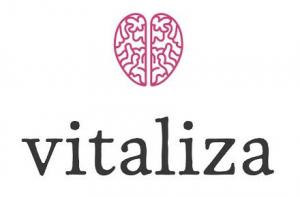Interview with Mario Garcés: training and learning in the middle of nature
When we talk about training, we often assume that everything is limited to transmitting knowledge through the word. This conception of learning, however, leaves out a large part of the elements that come into play when it comes to internalizing significant lessons; the context and the way in which we interact with the environment while learning matter as much or more than what the teachers say.
This is something that the coach and trainer Mario Garcés knows well, who habitually leaves the landscapes of the Meseta (he lives in Majadahonda) to accompany his clients to the natural landscapes of the Benasque valley and carry out training programs there in the open air in the heart of the Pyrenees.
These personal development courses focus on the improvement of fundamental psychological skills, such as the regulation of emotions and the understanding of complex situations, and they take advantage of the unique environment of the Aragonese Pyrenees to achieve a truly significant. To learn more about this initiative, we interviewed Mario Garcés.
Mario Garcés's proposal: training in the middle of nature
In these lines we talk with Mario Garces to explain more about the way in which he conceives training and personal development programs in natural environments.
This trainer, who has dedicated himself to research in the field of affective neuroscience, emphasizes the need to understand the importance of emotions and their link with nature.
Why did you decide to start using natural spaces to carry out courses and personal development activities?
Throughout our history as a species, we have grown and developed in direct and permanent contact with nature. This relationship has shaped us as we are, with our abilities and skills, both physical and psychological.
But, at a given moment, human beings separated from nature and turned it into something external and distinct from us, something to be controlled and subdued, something that could be exploited.
We are already seeing the consequences of this break with our origins in the form of climate change, plastic pollution, but also in the form of loneliness, stress, depression and abuse of all kinds of substances.
Thus, when what we want is to learn to regain balance with ourselves, as prerequisite to recover it as a society, a good first step is to return to the origin, to the nature.
What are the activities you design for these events based on? What is different about them?
Nature offers us many opportunities to generate and explore vital metaphors, very useful for understanding the concepts I intend to convey.
These metaphors are at the heart of all the activities, simple, that we carry out in nature during training. They allow participants to connect with basic but very deep ideas and ask questions about themselves and their relationship with their living environment.
Surely you are used to working with a wide variety of people, but in general... what is the profile of those who want to take these courses? What are your goals?
The people who come to my nature courses are usually people between the ages of 30 and 55 who are looking for more than just recipes. They want to understand, and often deal autonomously, intense life situations or fundamental questions that allow them to grow and develop as more "awake" and happier people.
What they value most is the fact that I speak to them from my own personal experience, very broad and intense, something that makes up my personal brand. Many participants also appreciate my extensive research experience which, combined with a rich vital experience, gives them a very enriching double vision and rare in this type of courses.
And related to the previous question, how do natural spaces facilitate reaching those personal development goals?
Let's take the mountain for example. When you enter the mountain all your senses are sharpened, the spaces open up, you breathe better, you see the sun, the sky, the forest, you put your body in motion, you eliminate toxins.
All problems are left behind, down there in the city or town where you live. The effort becomes a personal challenge; You fight against your own limitations.
There, no one but you can be responsible for whether you keep going or stop. That forces you to take responsibility for your own decisions and leads you to learn how to make better decisions or how to assume those already made.
But it also helps you find your own rhythm, different from that of the others that we often try to imitate, while you feel that everything in that environment, all that nature covers you and accompanies you in that work of self discovery.
You currently take these courses in the Benasque Valley, in the Aragonese Pyrenees. Why there, precisely?
The Benasque Valley has been my home for almost 15 years. It is a glacial valley carved out between the two largest massifs of the Pyrenees, and it is difficult to access, which makes it a natural oasis, the "Hidden Valley".
In addition, I know it very well, which allows me to dynamically customize the activities, according to the different characteristics of the different groups. This knowledge makes it easier for me to generate those metaphors that we are looking for as a fundamental part of the training.
What other element makes your courses something different?
The main element is that my goal as a trainer is to make people more capable and independent when it comes to approaching their own lives. As an example, a part of the training is aimed at teaching the participants the knowledge fundamental so that, autonomously, they themselves can do simple activities in the nature.
Thus, I teach them to measure times, to recognize a path, to interpret the clouds or measure the effort. My goal is not that they come to a course every time they want to grow, but that they feel capable of incorporating the nature as their own personal development tool, making what I initially gave them their own. taught. This also works for more mental techniques, thus gaining autonomy at all levels.


